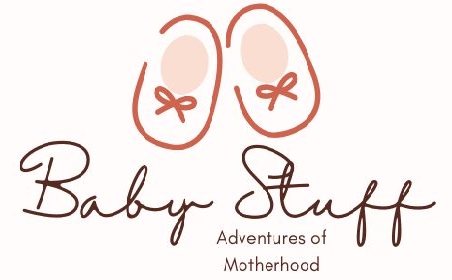Suppose your baby has initially been diagnosed with a respiratory virus. As a result, he may suffer from the wheezing breath that could be super noisy at times. This sometimes happens because of an infection in your baby’s lungs that is also known as bronchiolitis. This condition is considered normal when it comes to babies because around 100,000 babies are diagnosed with this same condition by pediatricians every year.
A question may pop into your mind, whether your baby is snoring or wheezing. When your baby is wheezing, you may as well hear when he inhales and exhales. This happens due to a narrowed airway, also called stridor. At the same time, it is very normal among babies because they already have tiny airways, so any kind, even a minor blockage, makes breathing harder for them.
Is it Normal for Newborns to be Wheezy?
In the first few years of your baby’s birth, wheezing is considered normal because it is a result of bronchodilators. Many parents get scared when they get to know or hear their baby wheezing. But this is very clear that children and babies could have more chances to wheeze than adults.
In the previous years, it was considered asthma, but now it has been researched that many children who faced wheezing did not have asthma in their adolescence and childhood. A situation where your baby’s wheeze should not be considered normal is after they are stung by a bee, they have eaten something they are allergic to, or have taken a medication.
The symptom might also include severe difficulty breathing normally, or their skin color might turn blue. This may happen if your baby chokes on a chunk of food or other things.
What to Know About Wheezing?
Recurrent wheezing is a result of frequent respiratory viral infections, allergies, and even asthma. The rare causes of periodic wheezing include chronic dysphagia enabling recurrent aspiration, airway malacia, gastroesophageal reflux, a heart failure, or even retained aspirated foreign body.
Wheezing can be categorized into its different patterns and duration:
- Episodic Wheeze: there is wheezing that is between episodes; with a viral cold it is often taken with genuine clinical evidence.
- Multi-trigger Wheeze: wheezing other than an acute viral episodic wheeze is considered as a multi-trigger wheeze.
- Infrequent Wheeze: Children who have never experienced wheezing or have faced it once in their lifetime.
- Transient Early Wheeze: This type of a wheeze begins in the early years of a baby’s life and then keeps on stuck to them until the coming year before it is being vanished after almost the third year.
- Intermediate Wheeze.
- Late-onset Wheeze: this demonstrates the irregular wheezing from 6-42 months of the baby’s age.
- Persistent Wheeze is happens at 6 months of the baby’s age or in the later months.
Potential Causes of Baby Wheezing
Why does my Newborn sound so wheezy? Some common causes of wheezing in babies may include:
Allergies
If the baby is allergic to any substance like dust or pollen, their body notices that pollen and dust as a foreign bodies. As a result, their immune system responds. Due to this, their airways are narrowed, forcing the air to pass through a narrow, smaller space. This narrowing actually causes the wheezing, that is, the whistling sound.
Asthma
Children who are experiencing the issue of asthma have their airways that are super sensitive and can be easily inflamed. This inflammation can be caused due to the exposure to triggers and irritants, such as air pollution or cigarette. As a result, they face the shortness of breath, coughing, and wheezing, along with tightness in their chests. These symptoms are often worse during the night.
Gastroesophageal Reflux Disease (GERD)
Does reflux in babies cause wheezing? In this disease, the acid of the stomach leaks and reaches the food pipe or the esophagus. Along with the breathing, small amounts of this liquid reach the lung, which causes swelling and irritation of the airways. As a result, wheezing happens. Letting your baby sit straight for almost 30 minutes of feeding and regular burping can help reduce GERD. The risk of the disease falls very low when the baby reaches the time of his first birthday.
Infections
Chest infections can also cause wheezing in your baby or infant. These infections may include the lower respiratory infections, such as pneumonia and bronchiolitis. The upper respiratory infections called colds can also result in heavy and noisy breathing but will not let wheezing happen until the lower airways are affected.
Most of the time, this infection could be cured at home by using plenty of fluids and letting the baby rest. Sometimes, some infants with bronchiolitis seem to be healthy, but they still have the issues of wheezing, vomiting, and dry cough after being fed.
When Should I Worry About My Newborn’s Breathing?
It would help if you were very attentive when the child is not even 12 weeks old and still has a problem with his breathing. You should be concerned when their baby seems to be pale or sweaty, if their lips are blue, or if there might be lengthy intervals in their breathing pattern.
Colds or Viruses
A very common cause of wheezing in babies could be because of cold or a virus infection. Which further leads to non-resistant coughing.
Croup
Babies with croup could face breathing trouble because their tiny airways might swell.
Hay Fever
Hay fever, also known as allergic rhinitis, may affect the sinuses and nose of your baby; this can cause sneezing, itchy nose, and congestion. It mainly affects the lungs, which can further lead to wheezing, shortness of breath or fast breathing, and coughing.
Whooping Cough
Whooping cough is a severe infection that can be prevented by proper immunization, but your baby might wheeze once it happens.
Pneumonia
It is a respiratory disease that is caused due to an infection. This infection can also cause inflammation in the lungs, cough, difficulty breathing, high fever, and wheezing.
What are RSV Symptoms in babies? RSV symptoms may include the baby not taking the feed properly, coughing, irritability, and rapid breathing. They may as well struggle to breathe; their skin and chest muscles would be disturbed and pulled with every single breath.
When Should I Worry About My Baby Wheezing?
There are situations when your baby might fall into the pit of some rare and serious wheezing causes.
- Congenital Vascular Abnormalities
- Cystic Fibrosis
- Immunodeficiency Diseases
- Primary Ciliary Dyskinesia
- Tracheobronchial Anomalies
- Vocal Cord Dysfunction
Bronchopulmonary dysplasia (BPD) is a severe condition that happens among premature babies. These babies might have been on ventilators and oxygen because of their underdeveloped lungs at birth. After the babies with BPD are discharged from the hospital, they need extra oxygen.
Suppose a baby has sucked in a foreign body that has blocked the airways and may cause wheezing. This may happen when the baby is eating or playing.
To save the babies from choking, they should not be given any food such as popcorn, peanuts, pieces of hotdogs, hard candy, or fruits and vegetables with big chunks.
How to Treat Newborn Wheezing?
The treatment of wheezing newborns depends completely upon its specific type. Some of the time, the doctors suggest natural and simple remedies with mild medication to relieve a baby with his first time wheezing.
Some home remedies that may be suggested to you by the doctor could be these:
Humidifier
To add moisture to the air, an air humidifier could be kept as handy. This will help with congested airways, which additionally reduces wheezing.
Hydration
If your baby is wheezing because of any infection, then it’s very important to keep them hydrated throughout the day. Ensure your baby has enough fluids to loosen the mucus and help clear up the nasal passage.
Nebulizer
A device which allows the inhaling of medicine in a mist from is called as a nebulizer. If the wheezing is a result of asthma, the doctor may suggest albuterol that should be mixed with salt water to use with a nebulizer. This medicine will cure the baby if they have asthma or wheezing.
But if the baby seems to have a labored breathing or bluish skin and lips, emergency help should be sought.
Bulb Syringe
If the baby is congested, a device known as a bulb syringe might help to suck the mucus out of its blocked airway. You should know that your baby’s airways and nasal passages are still growing and developing. Be very gentle when using a bulb syringe; sanitize it between each use.
Medications
There are not a bunch of cough and cold medications that could be given to the babies. Any medicine that has been designed to break or relieve the baby from fever will not help severe cough or wheezing. It causes a risk of infant Botulism if you give your baby honey to soothe their throat or the wheeze.
Antibiotics
Antibiotics work great when the baby has a bacterial infection. If you follow its course strictly, you will see a major difference in the cause of wheezing for your baby.
Surgeries
Severe wheezing that includes infected tonsils and adenoids or even the apnea of sleep would probably need a proper treatment, such as surgery. However, it is not required if the problem is solved with only the medication. Some rare situations, like congenital heart conditions, may need surgery along with proper care.
Clear the Nose
Using saline drops, you may easily clear your baby’s nose. This will clear your baby’s nostrils and the airway to help him breathe properly.
Mustard Oil Massage
If we talk about natural home remedies for wheezing, mustard oil is great in healing breathing and triggering proper blood circulation, and refines the respiratory tracts of your baby. You can take a few drops of mustard oil in your hands, rub the hands together and massage your baby’s chest for almost 10 minutes.
Raw Onions
Keeping a raw onion beside the bed can help a lot in clearing up the infection and the airways to treat wheezing. You can also grind an onion, add it to the baby’s food and feed him.
Steam Bath
A steam bath leaves the same effect as that of a humidifier. It helps in melting the mucus to clear up the nose, throat, and the full respiratory tract. You can also add your favorite essential oils to the hot water you are using for a steam bath.
When to See a Doctor?
Some symptoms cannot be left just like that; if your child’s breathing is harsh or their skin is turning blue, you should seek medical help. It could be a result of an allergic reaction or any other medical condition that may fall into the category of serious. Immediately call the doctor if your baby is facing:
Chest rattling
This happens when the baby’s airway is somewhat blocked, and there is a harsh sound and a rough rattle you can hear while he breathes.
Severe fits of coughing
Coughing fits could be dangerous, especially if the baby is just being fed. Coughing fits can also cause severe vomiting.
Dehydration
If your baby has dark-colored pee with a strong bad smell, then this may be caused due to dehydration. The baby may pee less than he often does.
High fever
This can include chills, shivering, and shaking of the body. For babies, you can either use a thermometer, or if the fever is extremely high, you can easily guess it with the raising temperature of your baby’s body.
Conclusion
Wheezing is very common in babies. Getting to know its type is very important in order to go for its treatment and precautions. It is a condition that should be considered and taken seriously because it might range from a minor to a harmful condition.
If you are confused with your baby’s breathing pattern, then you should probably book your doctor’s appointment and take the issue seriously. It would help if you never tried coughing medicines or any other antibiotics by yourself because they may result in something dangerous. When the matter is about babies, let the doctors be professionals and take everything into their own safe hands.
Also interesting to read:
- Newborn dry lips: Sign, Causes and Treatments
- When To Switch Nipple Sizes On Baby’s Bottle – A Full Guide!
- Reasons CPS can take your Newborn
- Newborn sticking tongue out
- Newborn Snoring
- How To Clean Baby Ears
- Tips To Get Better At Burping a Newborn That Won’t Burp
- Baby Born Deformed: What are the Main Types of Birth Defects?
- All You Should Know About Why is Newborn Nocturnal





